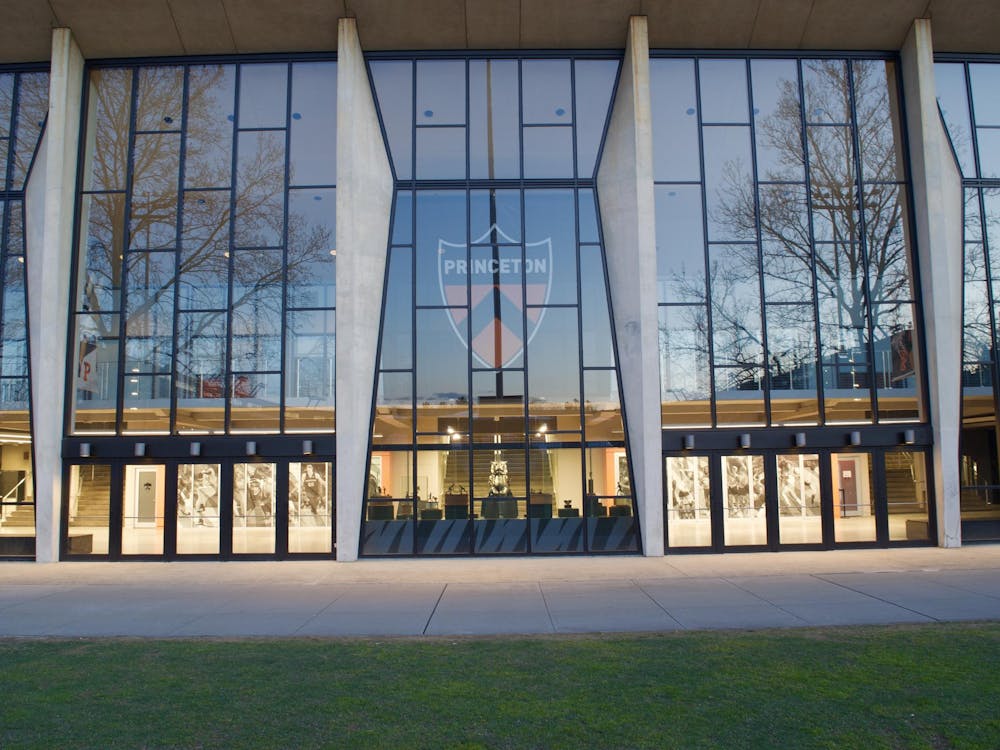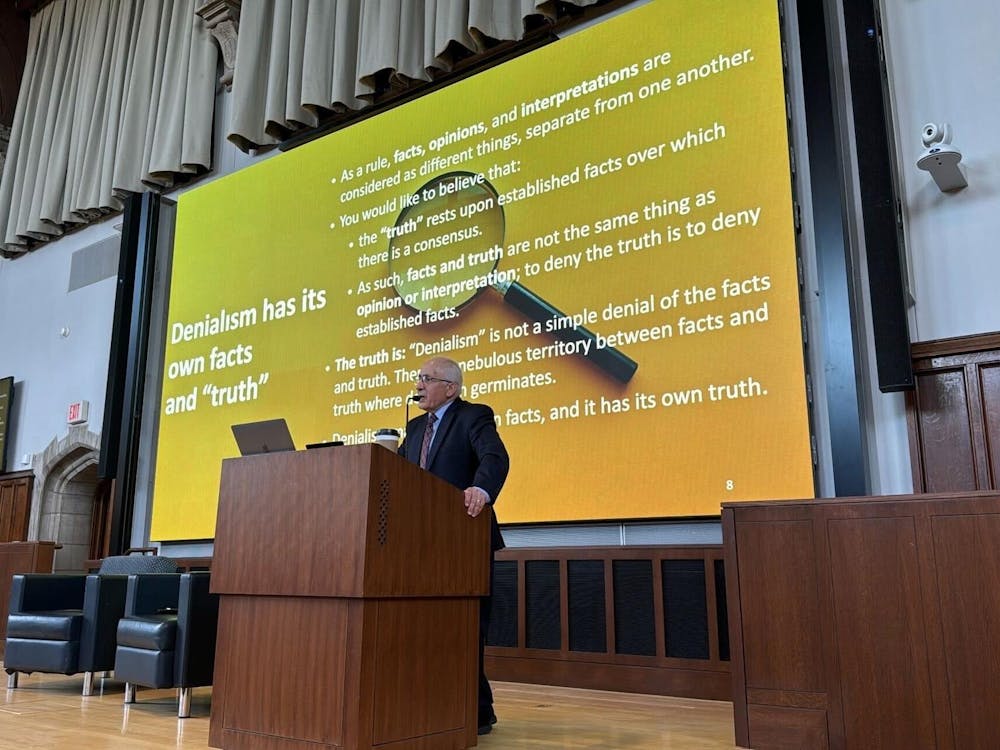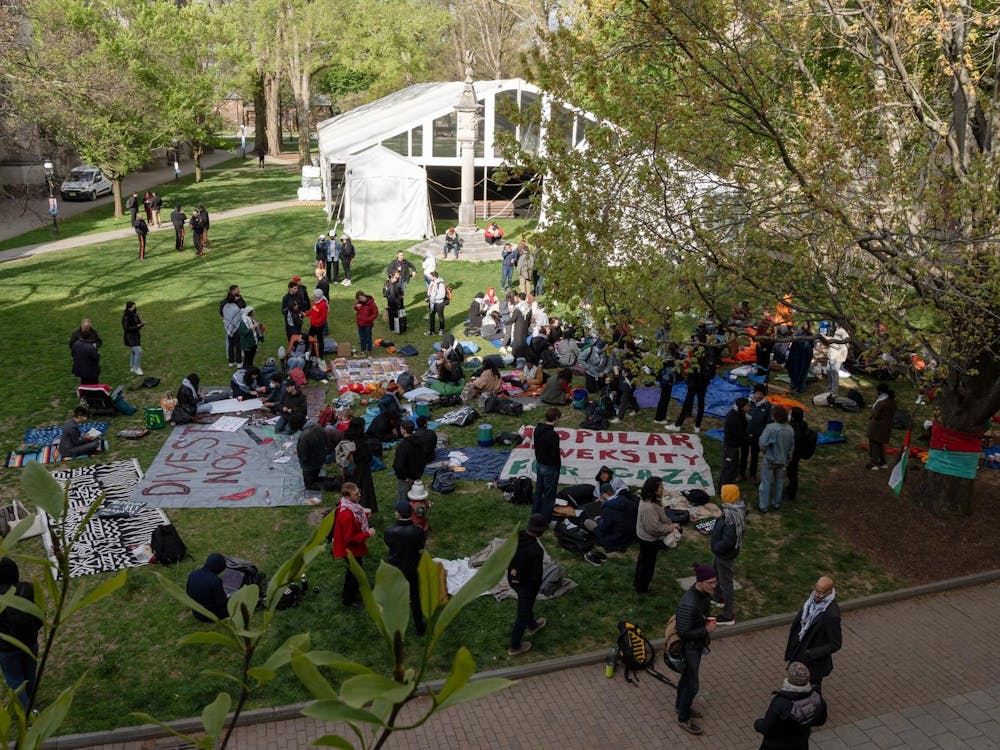Pablo Chavez '93, Director of Public Policy at Google Inc., participated in an Alumni-Faculty Forum titled "Government Today: Key Domestic Policy Issues" on Saturday morning. Chavez said he comes back for every fifth reunion. Here for his 20th, he took time out of the festivities to speak with The Daily Princetonian about his time at Princeton, how it prepared him for public policy and his work with Google.
The Daily Princetonian: Tell me about your time at Princeton. What were you interested in?
Pablo Chavez: I majored in public and international affairs at Woody Woo, and I obtained a certificate in Latin-American studies. My thesis was about NAFTA actually, and other ways of achieving political integration. It was actually a lot of fun, and I spent a lot of time on it. It was really one of the most fun, most interesting things I did while here.
DP: Who was your advisor?
PC: Jorge Castaneda who ended up as the foreign affairs minister for Mexico, a really interesting guy. He was always reminding me to work less hard and enjoy life more. I don't know if that is what you want to hear from your thesis advisor but that's what I heard from him often.
DP: How do you think Princeton helped prepare you for what you are doing now?
PC: First of all, at Woody Woo itself, majoring in public and international affairs at Woody Woo gave me an opportunity to explore different areas that I was interested in: economics, public policy, politics and so forth. It really gave me a really broad view of possibilities in the future. Also, the truth of the matter is that the writing skills that you develop, the interactive skills that you develop, the social skills that you develop while at Princeton are tremendously helpful for a number of professions, and certainly for law, for public policy. My time here really laid down a great foundation for what I've done since graduation.
DP: Are there connections from your time at Princeton that have proven useful?
PC: Besides my wife, who was also in my class, yes. The network that being a Princetonian allows you to plug into is really amazing. In Washington, Princetonians have really taken to heart the notion of Princeton in the nation's service, so you see in Congress, in the administration, in NGOs, at companies — a number of folks who have decided to dedicate themselves to public policy and public service and to engage themselves in the policy and political debates of our time. It has been great. I have met a lot of Princetonians who have been really influential, and really great people to work with — some of them in my class.
DP: Tell us more about Google. What is your role there?
PC: So as the director of public policy, I identify issues that would impact the technology space broadly, the Internet space and Google specifically, and really work with the company and outside of the company to develop solutions to those issues as they are coming up, and to figure out advocacy strategies and how to surface those issues and elevate those issues. They range from intellectual property to freedom to expression, to privacy and security, really just a broad range of issues.
DP: Out of those issues that you just mentioned, what do you think is the one you are most excited to be working on?

PC: I think the most interesting issue involving the Internet and the creative community is the issue of 'Has the Internet been helpful, and will it be helpful to creators? To artists? Filmmakers, musicians and so forth?' What has been really interesting to see over the last five years in particular is really how independent artists and those associated with larger companies are taking advantage of the Internet and Internet tools like YouTube and Facebook and so forth, and create sustainable and robust careers. That has been heartening to see, and it has also been great to demonstrate in places like Washington how technology and the creative community are not at odds, but they are actually partners, and that has been a great trend, and really fun to work on.
I think that generally speaking, you will often see issues surfacing in D.C. before they are actually ripe. Just as often, you will see debates in D.C. that are lagging behind what's actually happening outside of the beltway and in the economy, but this is one where really a lot of folks in the technology community and the Internet space have a job to do in making sure policy makers really understand what is happening in the digital economy and the creative economy today. It is not the policy makers’ fault — it really is a fast moving space, and there has been a lot of evolution over the past few years.
DP: What are the steps you took to get where you are today?
PC: The truth of the matter, at least for me, although it may look I planned out my career, I didn't. But, what I did do, and ... have done throughout is keep my eyes open for opportunities, and I make sure to talk to people and to network, and I think that keeping up your relationships, making sure that you're aware of your environment and opportunities that pop up, and being willing and able to take those opportunities when they come up — because often they don't come up at convenient times — I think that's all very important, handily much more so than having a linear sense of how your career should go and planning it all out. In my experience, that typically does not work.








